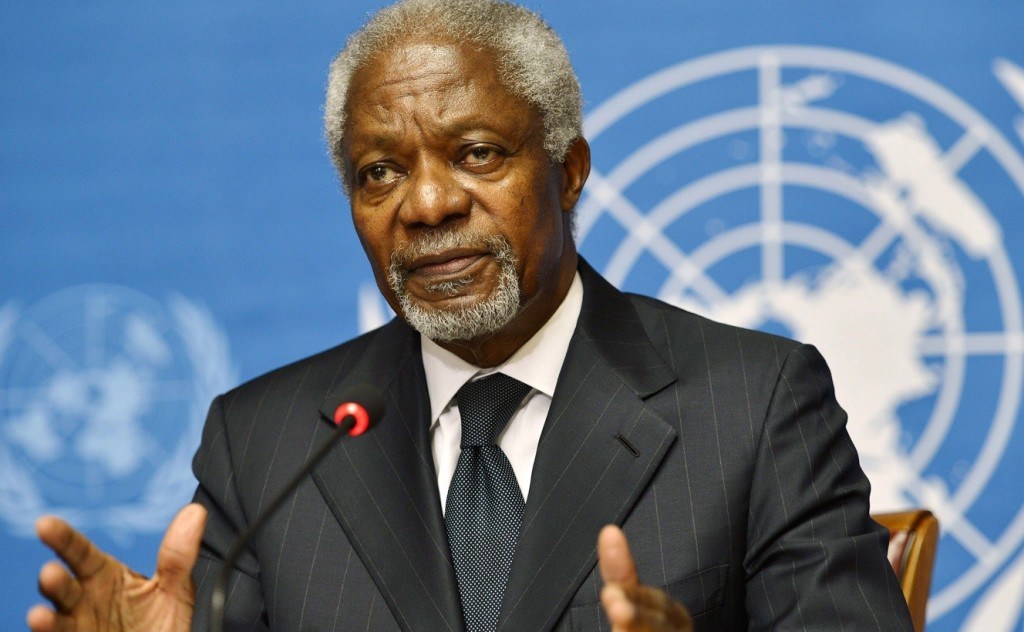
In 1997 Kofi Annan made history by becoming the first person of African descent to serve as the Secretary-General of the United Nations, a position he held until 2006. Under his tenure, human rights and development were put at the forefront of all UN work, ensuring that the organization focused on all people around the globe. Born in Ghana, Annan joined the UN system in 1962, first working as an officer for the World Health Organization. Apart from a few years, he would remain in the United Nations for most of his career.
Noted for his cautious style of diplomacy, in 1980 he gained an important post at the UN High Commission for Refugees in Geneva; and in 1983, he became director of administrative management services at the UN Secretariat. In 2007, after stepping down as UN Secretary-General, Annan continued his work for the UN, including as Special Envoy on the Syrian crisis and Chair of the Advisory Commission on Rakhine State, Myanmar. He also founded the Kofi Annan Foundation, a non-profit that works to promote better global governance with the aim of achieving a fairer, more peaceful world. In 2001, Annan was awarded the Nobel Peace Prize jointly with the United Nations "for their work for a better organized and more peaceful world."
A part of Annan’s success can be traced back to his time spent at the MIT Sloan School of Management. He was admitted in 1971. Because of his dazzling track record, MIT granted Annan a Sloan fellowship – a highly selective program that provided the world's first mid-career and senior career master's degree in general management and leadership. In 1972 Annan received his Master of Science degree in management from MIT's Sloan.
An active alumnus, Annan visited MIT several times over the years. On at least two occasions the Ghanaian diplomat was able to deliver campus talks from a perspective that few MIT students could ever hope to imagine. First in 1997, Annan delivered that year's commencement speech. Then in 2002, Annan returned to deliver the keynote address at the MIT Sloan School of Management’s 50th anniversary celebration. In the talk, Annan said his time at MIT broadened his perspective on how to achieve international change and cooperation.
“Sloan looked well beyond the confines of this campus, encouraged people from many nations to study here, and was eager to advance the cause of international cooperation, scholarly and otherwise."
